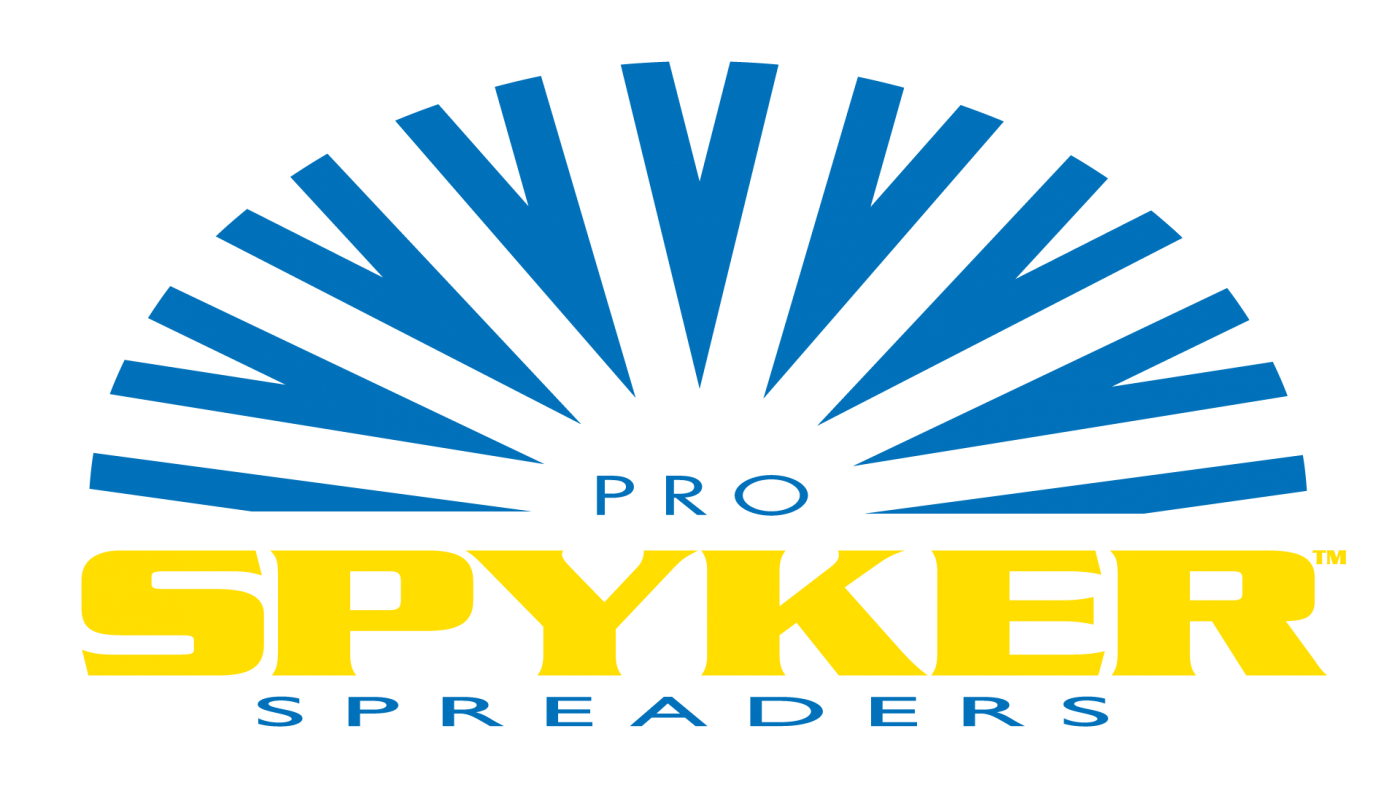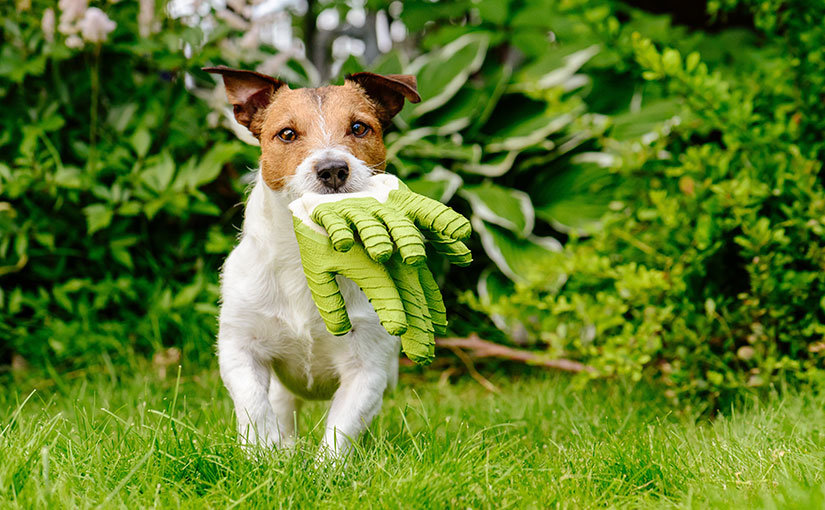Got customers who want pet friendly lawn care?
If your lawn care service works with homeowners who have pets, you may need to switch to organic fertilizer and other pet safe lawn care products.
In this blog post, you’ll learn the following:
- Pet friendly lawn care
- Coaching your lawn care customers on lawn management with pets
- Pet-safe lawn fertilizer.
Pet Friendly Lawn Care
If your customers are mostly made up of residential clients, you know that there will be pets and kids using their yards. So, you need to think about how to protect these vulnerable populations.
You may also need to use pet-safe lawn fertilizer and other organic lawn products to reassure your clients that their kids and pets can go back outside to play after 24 hours.
Dog urine stains are another high need for homeowners with pets. While homeowners with cats don’t deal with stains, dog owners will find brown spots popping up where Fido went to the bathroom.
Learn more: Got a ZTR Mower? You Need Brinly’s ZTR Attachments.
However, cats like to dig and bury their waste while dogs will squat to urinate (female dogs, elderly male dogs, and male puppies). Adult male dogs lift a leg at their favorite tree or shrub, which affects the landscaping side of your business.
So, how do you create a thick, green lawn for customers with pets, dogs in particular? You need to
- Use organic fertilizers with no herbicides or pesticides in them where the homeowner’s dogs roam
- Design and build a place for dogs to go to the bathroom
- Fertilize the entire lawn with plenty of nitrogen, so grass grows green and masks the areas where dogs go to the bathroom
- Coach your lawn service customers to wash away their pet’s urine with water after each potty break
- Renovate pet-damaged lawns.
You also can keep mowing customers’ lawns higher, so the grass camouflages brown spots where dogs left their mark.
Following good lawn care practices, such as finding pet safe lawn fertilizers (which may be organic fertilizer), may be the only way to give a homeowner what they want—a green, dense lawn.
Coaching Your Lawn Service Customers
Most successful lawn service companies know that their clients will have more satisfaction with their yards if they work in partnership with you.
For example, you know that turfgrass needs only an inch or two of water per week—including the water from rainfall. But you can’t control how much and how often your customers water their lawns.
So, you write blogs, post on social media, and hand out fact sheets educating your customers on best lawn care practices they must do in-between visits.
Apply the above logic when coaching your clients on pet friendly lawn care. For example, you can teach your pet-loving clients to keep a watering can or a hose at the ready where their dogs urinate.
Watch More: How to Assemble the Brinly ST-25BH 25 Gallon Tow-Behind Lawn Sprayer.
After each bathroom visit, the homeowner flushes the dog’s urine with water to minimize the amount of damage done to the yard grass. It also helps to dilute the nitrogen in the urine so it absorbs in the ground.
Here are some other tips to share with your lawn care customers who have pets:
- Remind your pet-loving clients that the dog’s high nitrogen and alkaline urine kills lawn grass. Since dogs eat meat, their urine is alkaline rather than acidic.
- While the dog’s urine contains nitrogen that lawn grass needs, it’ll burn the turf unless it’s diluted with water.
- If you don’t provide mowing services, encourage your clients to mow high with sharp blades. Longer turfgrass reduces stressed lawns caused by dog urine.
- Plant ryegrass or fescues, which are more resistant to dog urine. You can tell clients that Kentucky blue and Bermudagrass are the worst grass varieties to use on lawns with dogs.
- If swaths of lawn grass are dead, suggest that you renovate that part of the lawn, so the customer has an evenly green, healthy lawn.
- Add a dog run service where you design and build an area for the family dog to go to the bathroom. In addition, include a fenced-in area, artificial turf, mulch (not cocoa mulch—it’s poisonous to dogs).
- Use a reduced nitrogen fertilizer in the pet area so the yard grass won’t burn.
- Don’t use gypsum or lime because it’s hazardous to dogs.
- Don’t suggest supplements to reduce nitrogen in dogs. These dog supplements don’t prevent urine spots. Instead, the supplements cause bladder and other issues in dogs.
- Encourage your dog-loving clients to train their dogs to go only in one area of the property.
Read more: The Best Garden Tractors for 2020.
Pet Safe Lawn Fertilizers
If your lawn maintenance company works on dog-friendly yards, you may need to add organic fertilization to your menu of services.
Conventional lawn care fertilizers that contain herbicides and pesticides will harm your customers’ dogs. Conversely, organic fertilizers containing blood or bone meal, fish products, and seaweed won’t cause health problems in dogs.
Use less organic fertilizer in the dog’s area since a dog will be attracted to fish byproducts and bone meal.
If your clients refuse organic lawn fertilizers, which are pet safe lawn fertilizers, you can use a pesticide- and herbicide-free fertilizer with low nitrogen in that area of the yard. Some experts even recommend not fertilizing the areas where homeowner’s dogs go to the bathroom.
If your customer opts for low nitrogen or no nitrogen fertilizer, you can also suggest that you leave the grass clippings on the lawn to return up to 25% more nitrogen into the ground when you mow.
Again, you’ll need to educate your clients that leaving grass clippings after mowing won’t cause thatch or weeds to grow. Instead, it’s an economical and eco-friendly way of using grass clippings.
Lastly, you may need to reassure your customers that you use mulching blades to chop the grass blades into smaller clippings, so they dissolve quickly into the soil.
How Spyker Spreaders Help You with Applying Pet Safe Lawn Fertilizer
The pros design Spyker Spreaders for the pros. If you apply pet safe lawn fertilizer on your dog-loving customers’ lawns, you need our Spyker Spreaders.
Dogs will be attracted to any fertilizer clumps left on the grass. However, our Spyker Spreaders Accuway™ and Spyker Dial ensure that all fertilizer granules are broken down, not attracting Fido’s curiosity of a new snack.
If you’re ready for a new lawn fertilizer spreader, visit your local Spyker dealer or buy online. If you have any questions regarding our Spyker Spreaders, call our customer service at 1-800-972-6130 or fill out our contact form.
Sources:
TheBark.com, “How to Keep Your Lawn Free from Urine Spots.”
BillingsGazette.com, “Pet Vet: Fertilizers Can Endanger Your Pets.”
GardeningKnowHow.com, “Fertilizer that is Pet-Friendly: Pet Safe Fertilizer for Lawns and Gardens.
LawnStarter.com, “Go, Spot, Go: 5 Myths about Dog Urine Spots on Lawns.”

